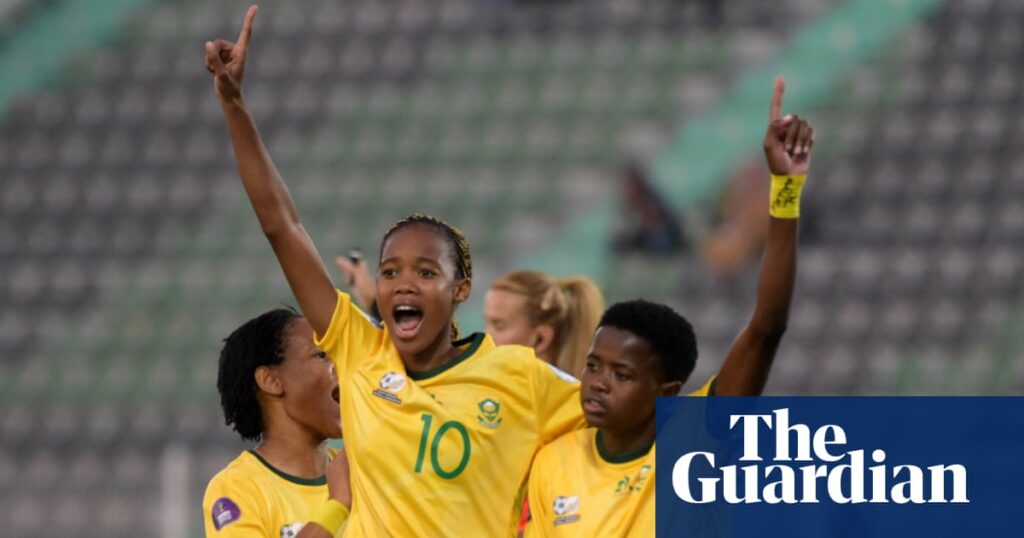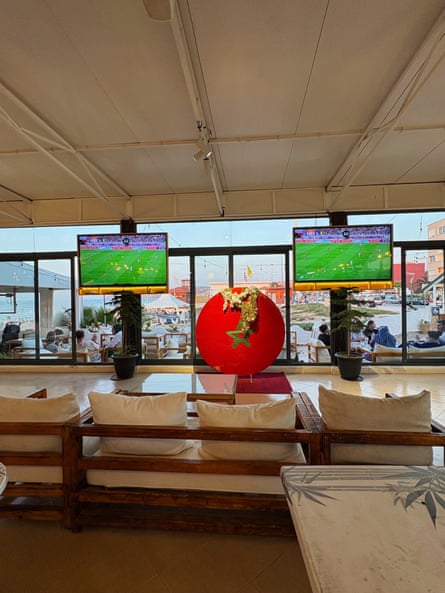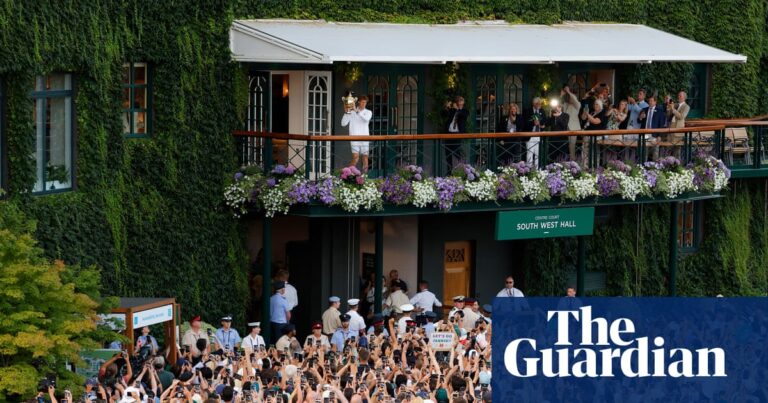
From deep inside the Stade d’Honneur came a beautiful sound as 26 voices united in song. The loudspeaker quietened in respect. The few dozen people at the ground braved the summer swelter to crowd near the players’ tunnels. Ghanaian players walked out in no noticeable combination with slightly puzzled looks on their faces. The noise grew louder and more distinctive as one voice called and the others responded. There was definitely the beating of a drum.
Then, they emerged. Defending champions South Africa announced their arrival at the Women’s Africa Cup of Nations (Wafcon) with nothing but notes of pure joy. For about 90 seconds, they kept the tune going. Even before they had kicked a ball, Banyana Banyana had offered something special.

Take Ghana, a country that last qualified for the knockouts nine years ago and who are now unveiling a new generation of players. Their Swedish head coach, Kim Björkegren, has said the Black Queens are more talented than his own compatriots but lacking the Scandinavian attention to minor detail which could elevate them to the next level. “Ghana has so much talent. It’s something in the DNA,” he said. “If you can add 5% of the Swedish organisation, we’re going to have a team that is good, not just in Africa, but in the world.”
Or take the Senegalese striker Nguenar Ndiaye, who plays at French third-division club Bourges Foot 18, and is the joint leading goalscorer after the group stage. Ndiaye, like so many women at this tournament, started off playing with and against boys to the disapproval of her parents and has since had to climb every rung on the ladder to a contract with an overseas club. She embodies the resilience that it takes to succeed and her advice to young hopefuls from a Confederation of African Football interview a few years back has the same relevance today. “Playing football is really difficult, but it’s also very rewarding,” she said. “It’s very holy, and it doesn’t prevent you from living your life as a woman of your time.”
Ultimately, that is the discussion we still need to have at the Wafcon: how to balance conversations around pure football with the broader social issues facing African female athletes. While the captains at Euro 2025 are wearing the rainbow armband to support LGBTQI+ rights, homosexuality is illegal in 10 of the 12 participating Wafcon nations. While the European players are talking tactics and strategies, the Africans are doing that while looking for ways to get paid. While women’s football in Europe grows exponentially – Uefa’s most recent report records a five-time increase in the last 20 years and over 1.2 million registered players – CAF’s promotional video for this tournament is a call to action to encourage young girls to play.

Indeed, while there are big groups of young boys in Moroccan football shirts kicking a ball about late into the night, the girls are absent. In the coastal town of Saidia, one hour away from the host city of Oujda, in a cafe set up to broadcast the Morocco-Senegal game, a young girl in a football jersey walked in with her family in the first encouraging sign that there is interest among the targeted demographic. However, she ordered an ice-cream and ate it with her back turned to the screens as Morocco won 1-0.
after newsletter promotion
Her reaction might have been different had she heard South Africa in full voice in what can only be described as spine-tinglingly inspirational. South Africa do not plan these chants. They sing in the bus and in the tunnel before every game, entirely spontaneously. The squad has a repertoire of traditional songs to hand, they don’t know any of the names and on any given day, one of them starts and the rest join in. It’s an instinctive expression of identity and cannot be explained any better than that. It’s only fitting that they are doing it with such gusto here.
Morocco is a country of music, often performed informally and almost always loudly. On the weekend of the Wafcon final, Oujda will host a raï music festival, celebrating a genre that originates in western Algeria, is rooted in Bedouin traditions and often sung by women. The tournament will have left this region by then but hopefully the beat of this event will live on.
Get in touch
If you have any questions or comments about any of our newsletters please email moving.goalposts@theguardian.com.
-
This is an extract from our free weekly email, Moving the Goalposts. To get the full edition, visit this page and follow the instructions. Moving the Goalposts is delivered to your inboxes every Tuesday and Thursday.




